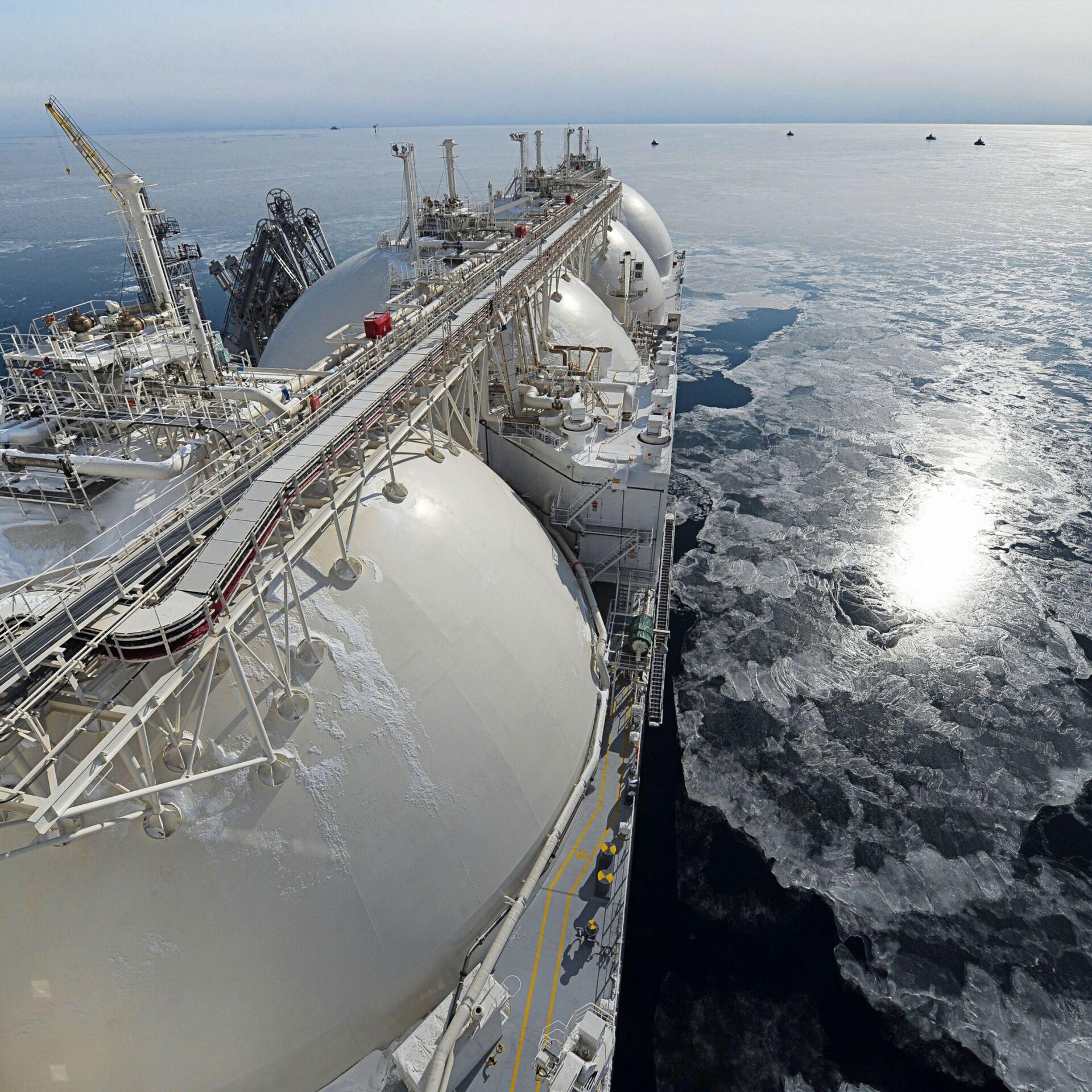Gas crisis leads to new era of confrontation between great powers
(Baonghean.vn) - Natural gas has now become the world's most popular commodity and is the main driver of global inflation. According to the authors of an article published in Bloomberg, a new era of fierce confrontation between the great powers is approaching, when the green fuel source that is currently not enough for everyone will now determine geopolitical positions.
As the authors note, the gas crisis has taken the Ukrainian conflict to a new level, after a significant portion of supplies were cut off. Russia has cut off pipeline gas supplies to Europe, and Europe has announced its intention to end purchases from Moscow, albeit not immediately. The fight to fill the gap is turning into a global brawl as countries scramble to secure scarce liquefied natural gas shipments before winter hits the northern hemisphere.
 |
| Liquefied natural gas shipment. Photo: AP |
Germany has warned that gas shortages risk triggering a recession similar to the 2008 financial crisis. Europe's economic heartland is facing an unprecedented scenario where both businesses and consumers could face power outages.
Nord Stream, Russia's main gas pipeline to Germany, will be closed for 10 days from July 11 for maintenance, but concerns are growing that Moscow will not restart the pipeline.
G7 leaders are looking to rein in Russian gas revenues and focus on supporting new investments in liquefied natural gas (LNG). But poorer countries that have built their energy systems on cheap gas cannot afford to do so.
“It’s like the 1970s, except now it’s natural gas. The world is looking at gas the same way it looked at oil back then, its critical role in the modern economy is clear, and the need for reliable and diverse supplies is clear,” said Kevin Book, CEO of Washington-based market research firm ClearView Energy Partners LLC.
The worst hit, the authors say, are some emerging economies that are increasingly competing with wealthy countries like Germany for LNG supplies on the global market.
In Pakistan, a country that has built its energy system on cheap LNG supplies, periodic power cuts have plunged entire regions into darkness during the hot summer months. Shopping malls and factories in major cities have been forced to close, and government officials have had to cut their working hours.
Thailand has restricted LNG imports due to high prices, leading to nationwide fuel shortages. Myanmar, which has yet to overcome political instability, stopped all LNG purchases late last year when prices first started to rise. India and China have also cut imports.
“Where natural gas markets were once largely regionally dispersed, we now have a global spot market that is ready to connect the world’s supply of a fuel that has become vital to many economies. This trend has been particularly evident in recent months,” James Whistler, CEO of Singapore-based brokerage Vanir Global Markets, said in a statement.
